Essential Oil Manufacturing
At the AromaLeap Essential Oil Manufacturing Facility, we utilize advanced extraction techniques overseen by our expertly trained professionals. This blend of expertise and innovation allows us to distill premium essential oils with superior precision and cost-effectiveness.
How Essential Oils are Made
The process of essential oils manufacturing is complex and delicate. Our process begins with carefully selecting the finest plant materials for their high oil content and aromatic properties. Our advanced distillation facility uses steam to gently extract oils from natural plant sources without degrading their delicate compounds. As the vapors carry the oils through a cooling system, they condense into a liquid that separates the oil from the water due to density differences. Each batch is under strict quality control to preserve the natural essence and purity of the essential oils.
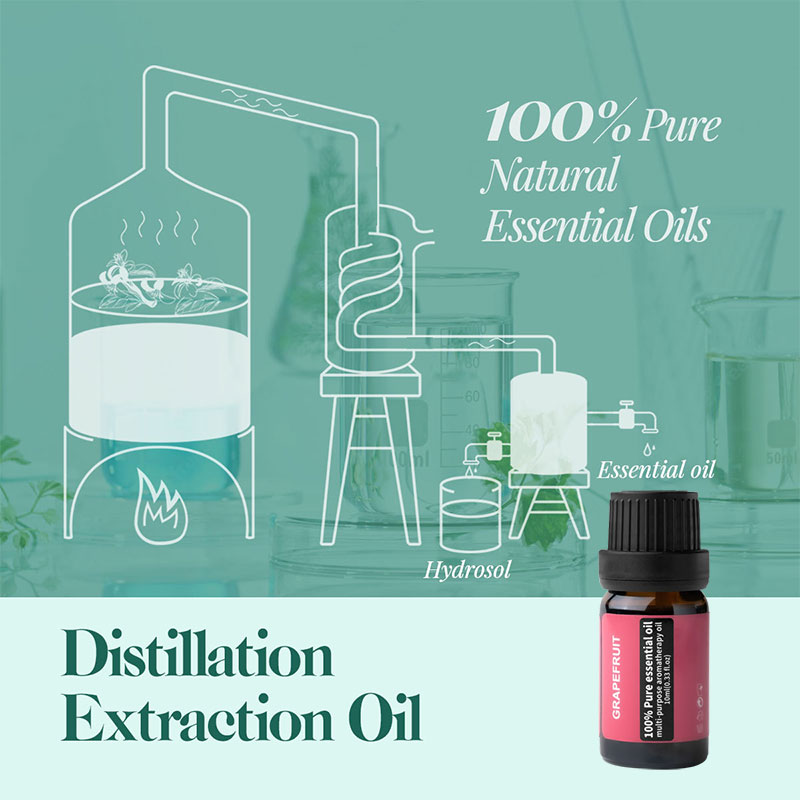
Botanical Essence Collection: From Pure Oils to Nurturing Hydrosols
- Essential Oils: A diverse collection of pure, concentrated oils extracted from botanicals, each with a unique scent and therapeutic properties.
- Carrier Oils: These oils are derived from nuts, seeds, or kernels and are ideal for diluting essential oils to create blends for aromatherapy and massage.
- Massage Oils: Specially formulated oils that combine essential oils with carrier oils, designed for therapeutic and relaxing massages.
- Floral Hydrosol: Also known as flower waters, these are aromatic waters produced during the steam distillation of essential oils, perfect for skincare and aromatic uses.
- Pure Dew: Delicate distillates are ideal for natural skincare, providing hydration and the natural scent of the botanicals from which they are derived.
- Formula Essential Oil: These are expertly crafted blends of essential oils tailored for specific therapeutic and aromatic benefits
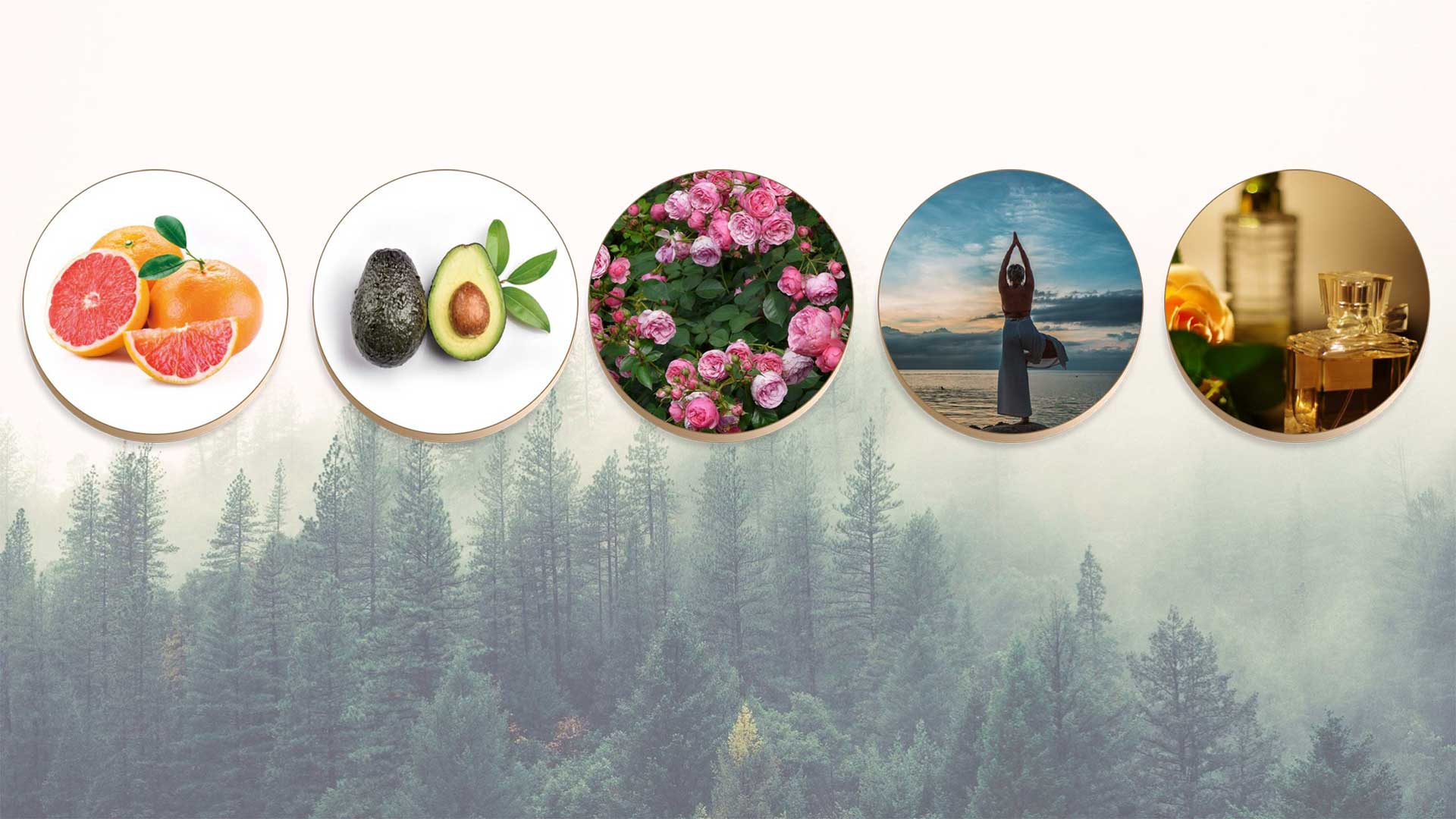
What are the Industry Applications of Essential Oils
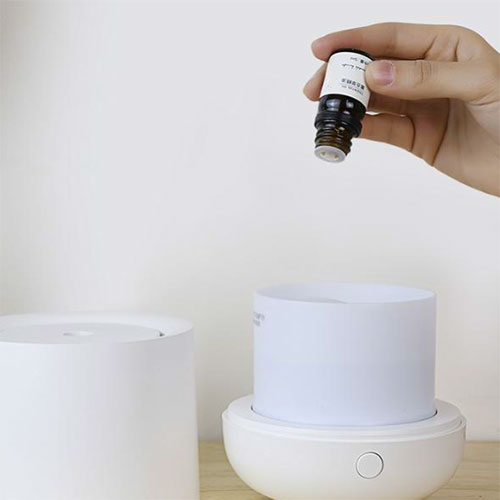
Air Fragrance
Our oils infuse the air with natural fragrances, enhancing living spaces and commercial venues

Body SPA
Selected for spa treatments, they promote relaxation and well-being

Aromatic DIY
A favorite for crafting personalized candle or hair products

Skincare Product Addition
Our oils are a key component in skincare formulations, providing natural benefits and fragrances
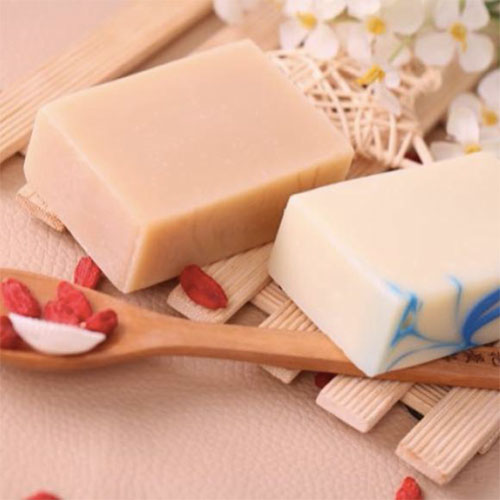
Daily Chemical Products
They serve as natural additives in everyday chemical products, offering luxury and comfort

Cosmetic Additions
Oils are incorporated into cosmetics for their aromatic and therapeutic effects
How to Make Essential Oil Step By Step
#1 Botanical selecting for Essential Oil Manufacturing
The first step involves choosing the appropriate plants. Different plants contain varying amounts and types of essential oils, so selecting the ones that yield the desired properties is necessary. Factors such as the plant’s botanical species and growing conditions are considered during this stage
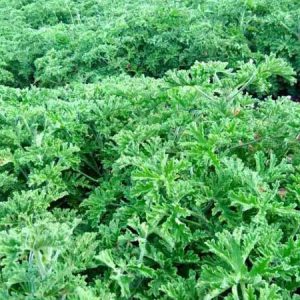
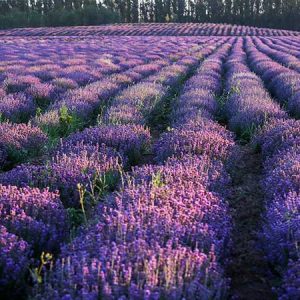
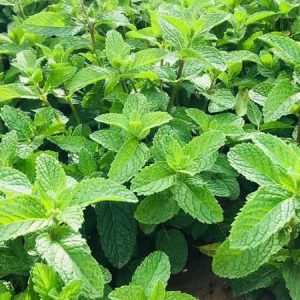
#2 Harvesting Phase for Essential Oil Extraction
The second step in the production of essential oils is the harvesting phase.
This stage is important as it involves the collection of the botanical material at the optimal time to ensure the highest concentration of essential oils.
The timing of the harvest is carefully determined based on the type of plant and its growth cycle, as well as the specific part of the plant that contains the oils, such as the flowers, leaves, or roots.
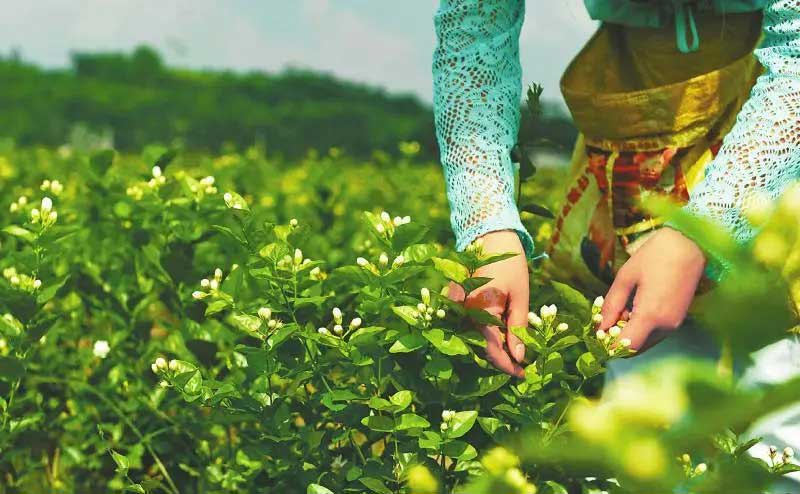
#3 Essential Oil Extraction Process
The third stage in the essential oil manufacturing sequence is the extraction process. This key phase involves separating the aromatic compounds from the plant material using various methods such as steam distillation, solvent extraction, and CO2 extraction. The chosen method depends on the type of plant being processed and the desired quality of the essential oil. Steam distillation, for instance, is a widely used technique where steam is passed through the plant material, vaporizing the oil, which is then condensed back into liquid form for collection.
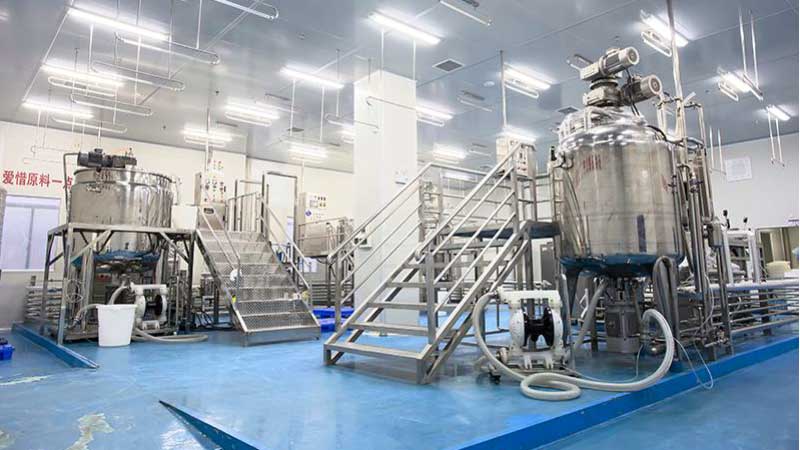
#4 Separation Stage in Essential Oil Production
The fourth step in the essential oil manufacturing process is the separation stage. This phase involves isolating the essential oil from the extracted mixture. Various methods, such as decantation, centrifugation, or filtration, can be employed, depending on the specific extraction technique. This step ensures the resulting product is a concentrated essential oil free from excess water or plant residues.
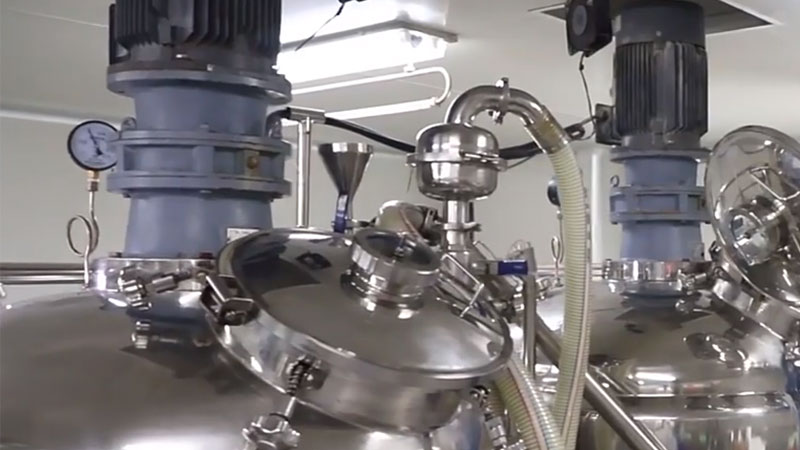
#5 Essential Oil Testing and Quality Control
The fifth stage in the essential oil manufacturing process is the quality assurance and testing procedures. This phase involves rigorous testing of the essential oils to ensure their purity, safety, and efficacy. Various tests are conducted, including organoleptic assessments, gas chromatography/mass spectrometry (GC/MS), specific gravity measurements, optical rotation, refractive index, and contamination testing. These tests ensure that the essential oils meet the required standards and are free from contaminants or pollutants. Additionally, stability testing ensures that essential oils maintain their quality over time.
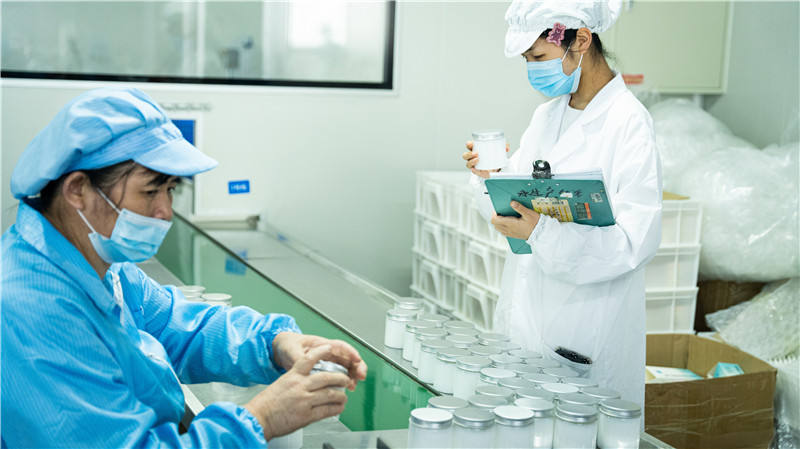
#6 Bottling and Packaging
The final stage in essential oil production is bottling and packaging. After passing quality control, the oil is transferred into tinted glass bottles to protect it from light degradation. Labels providing essential information such as the oil’s name, botanical species, and extraction method are applied. The oils may also be packaged in small paperboard boxes for further protection and branding. Once packaged, they are ready for distribution to various markets.
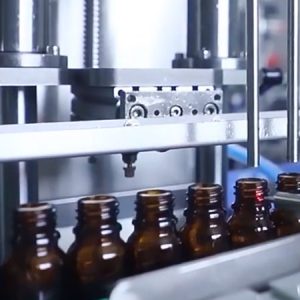
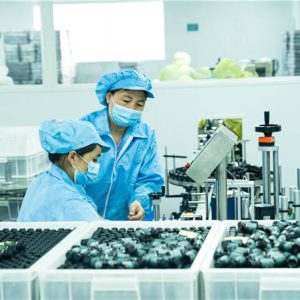

Diverse Packaging Solutions of Essential Oil for Every Need
Our essential oils are available in a range of packaging options to suit all scales of use and distribution
- Small Scale: For personal or small business use, we offer a selection of amber glass bottles ranging from 5ml to 100ml, ensuring product integrity and longevity.
- Medium Scale: Customized for mid-sized businesses, our sturdy plastic buckets are available in 75L volumes, ideal for larger batches.
- Bulk Supply: For wholesale and large-scale operations, choose from our 25L containers or expansive 200L drums, with materials like high-density polyethylene and galvanized iron for optimal safety and durability.
- Industrial Quantities: Our most extensive capacity solutions include 1200L Intermediate Bulk Containers (IBCs), designed for the highest volume needs with robust materials and easy handling.
With this series of choices, businesses of all sizes can find the perfect fit for their essential oil packaging needs.
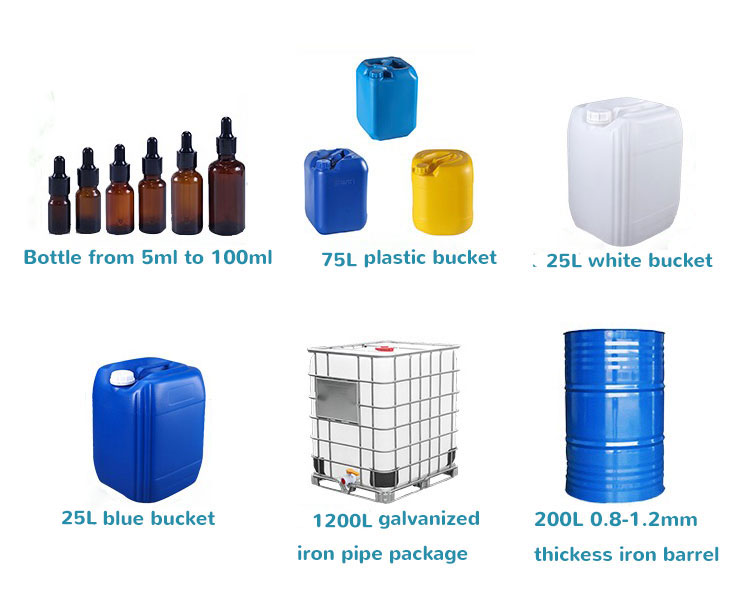
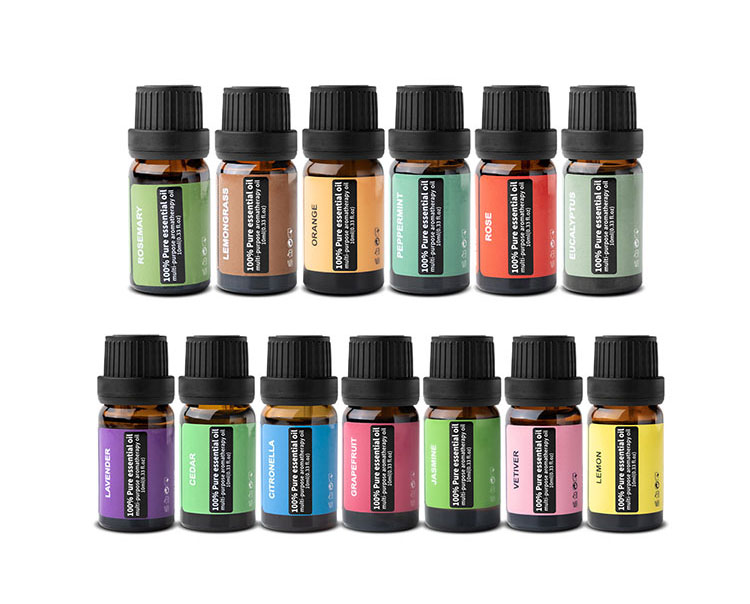
Request A Free Quote
We'd like to hear from you
Feel free to reach out with any queries or to request a quote. Our specialists will respond within 2 hours, assisting you in choosing the perfect product to meet your needs
- info@aromaleap.com
